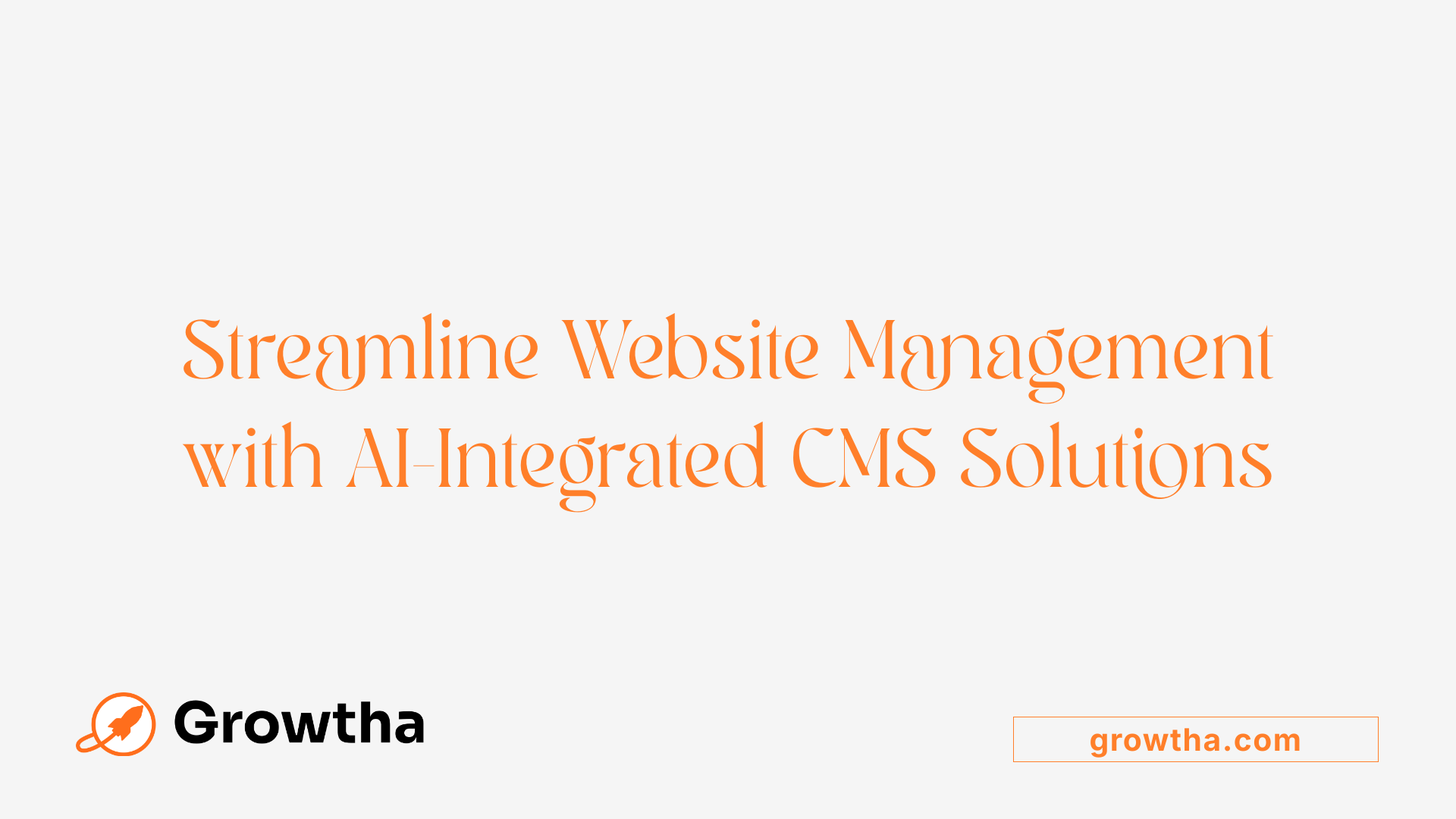In the competitive landscape of the medical device industry, effective SEO content generation is fundamental for establishing authority, increasing online visibility, and driving targeted traffic. Leveraging various SEO content generators allows companies to produce tailored, high-quality content efficiently, ensuring they meet regulatory standards and user needs. Here, we explore eight key types of SEO content generators that are transforming how medical device companies optimize their digital presence and stay ahead in search rankings.

Effective keyword research forms the foundation of successful SEO for medical device companies. Tools like Google Keyword Planner and Google Search Suggestions are invaluable for discovering relevant search terms that your target audience uses.
Google Keyword Planner helps identify keywords with high search volume and provides insights into competition levels, enabling companies to target terms that can boost visibility. Google Search Suggestions, which appear as you type in Google’s search bar, offer real-time ideas based on actual user queries, revealing popular questions and phrases related to medical devices.
Identifying long-tail and transactional keywords is particularly important in this niche. Long-tail keywords, such as "blood glucose testing devices for diabetes," tend to have lower competition and higher conversion rates. Transactional keywords like "buy medical device online" or "order insulin pumps" signal purchase intent and should be integrated into product pages and calls-to-action.
To produce relevant content, aligning keywords with user intent is essential. Informational queries—"What is a glucose monitor?"—should be addressed with educational content. Conversely, transaction-oriented searches require clear, compelling product descriptions and purchase options.
By leveraging these tools and strategies, medical device companies can enhance their website’s relevance and authority, ultimately improving search engine rankings and attracting targeted traffic.
Tool Purpose Main Benefit Additional Notes Google Keyword Planner Discover relevant keywords and search volume data Helps plan content around popular phrases Requires Google Ads account Google Search Suggestions Gather real-time search queries from users Reveals trending questions and specific long-tail keywords Based on live search data

Medical device companies can boost their digital presence by utilizing advanced AI-powered content generation tools. These platforms help in creating high-quality, targeted blogs, FAQs, and detailed informational articles that are aligned with search engine optimization (SEO) strategies.
One significant advantage of these AI tools is their ability to produce consistent, relevant, and optimized content. This frequent content update signals activity to search engines like Google, which can help improve search rankings and visibility. Moreover, AI-generated content enables companies to cover a broader range of topics efficiently, attracting diverse user queries and driving organic traffic.
Ensuring accuracy and adherence to healthcare regulations is crucial. Modern AI tools incorporate compliance checks to make sure the content remains factual, well-referenced, and aligned with regulatory standards such as FDA guidelines. This reduces risks associated with false claims or outdated information.
Creating authoritative, well-structured content with relevant keywords naturally integrated enhances the website’s authority and helps it rank higher in search results. Such content also answers user questions effectively, improving user engagement and time spent on the site.
Overall, leveraging AI content generators offers a strategic advantage in digital marketing for the healthcare and medical device industries. It enables continuous content production, maintains content quality, supports compliance, and ultimately enhances organic rankings.

Applying schema markup, especially MedicalDevice schema and LocalBusiness schema, can significantly improve how healthcare websites appear in search results. Dedicated tools like Google's Structured Data Markup Helper or Schema App can assist in embedding these markups correctly.
Automating the addition of structured data is possible through plugins or dedicated CMS integrations that continuously update the markup as content changes. This ensures the website remains compliant with schema standards without manual intervention.
Using schema markup qualifies your website for rich snippets and featured snippets, making your content more attractive and informative on search results. These enhanced listings can improve click-through rates, boost visibility, and establish your site’s authority.
Implementing schema markup is a core technical SEO technique tailored for healthcare providers and medical websites. It helps search engines better understand your specific content, which is crucial for appearing in relevant health-related searches.
Schema markup generators for healthcare websites—like Merkly, Rank Math, or Google's own testing tools—help ensure your structured data is accurate. These tools often provide easy-to-use interfaces and validation to optimize your site’s rich snippet potential.
Tool Name Focus Area Key Benefit Schema App Medical & Local Automates schema creation and updates Google Structured Data Helper General markup Validates schema correctness Yoast SEO WordPress sites Simplifies schema integration
Regularly updating and managing schema markup using these tools can lead to better search appearance and higher rankings, supporting your overall healthcare SEO strategy.

Creating a strong online presence for medical device companies hinges on effective content optimization strategies, particularly through on-page SEO tools. These tools, such as Yoast SEO and SEMrush, automate critical aspects like meta tags, headers, and keyword placement, making it easier to enhance content visibility.
Yoast SEO is widely used for analyzing content readability, guiding users to craft clearer, more engaging text. It also helps in optimizing meta descriptions and title tags, ensuring they are relevant and compliant with SEO best practices. SEMrush, on the other hand, offers comprehensive keyword research and site audit features, helping companies identify gaps and opportunities in their content.
AI-assisted tools further improve content quality by enhancing readability and effective keyword distribution. These tools analyze text to suggest improvements, ensuring keywords are naturally incorporated without compromising user experience. This balance is crucial in healthcare SEO, where trustworthiness and clarity are paramount.
Ensuring regulatory compliance is vital when optimizing healthcare content. Content must accurately reflect FDA regulations and avoid unsubstantiated claims. On-page SEO tools can assist in maintaining this balance by auditing content for compliance, helping companies avoid penalties and maintain credibility.
What content marketing and SEO strategies are most effective for medical device companies? Creating high-quality, authoritative content tailored to target audiences is crucial, and on-page SEO tools help optimize titles, meta descriptions, and headers, ensuring content visibility and engagement.
In summary, leveraging specialized SEO tools enhances website performance, boosts search engine rankings, and ensures content adheres to healthcare regulations. Incorporating these technologies into your digital strategy can significantly improve your company’s online reach and authority.

Earning high-quality backlinks through outreach and shareable content, supported by backlink analysis tools, significantly boosts search rankings.
Utilizing powerful backlink analysis platforms like Ahrefs and Moz is essential for understanding your competitors' backlink profiles and identifying opportunities to acquire similar high-authority links. These tools provide insights into the sources and quality of backlinks, helping companies pinpoint which websites are most valuable for link building.
Automation plays a vital role in outreach programs. By leveraging outreach automation tools, medical device companies can efficiently contact multiple potential link sources, personalize pitches at scale, and secure high-authority backlinks without overwhelming manual effort. This streamlines the process of building relationships with relevant healthcare websites, industry blogs, and medical journals.
Creating shareable, well-researched, and valuable content is another crucial part of effective link-building strategies. Using content generators or content creation tools helps produce white papers, case studies, or infographics that resonate with audiences and encourage backlinks naturally. Such content positions the company as a thought leader and increases chances of earning links from reputable sources.
In combination, these strategies—targeted competitor research, automated outreach efforts, and compelling shareable content—provide a comprehensive approach to enhancing online authority and search engine visibility for healthcare and medical device companies.
For more insights, search for "Backlink Outreach Automation for Healthcare Websites" to find specific tools, case studies, and best practices tailored to the healthcare industry.

Optimizing local search presence is vital for medical device companies that serve specific geographic areas. One effective approach involves using content generators to automate updates for Google My Business (GMB) profiles. These tools can regularly refresh business information, post updates, and share relevant news, ensuring the profile remains active and engaging.
Generating location-specific content is another key strategy. By creating blog posts, FAQs, or service pages tailored to local communities, companies can enhance their relevance in regional searches. This targeted content helps search engines understand the geographic focus of the business, increasing visibility in local results.
Additionally, managing online reviews is crucial for building trust and reputation. Review management tools enable businesses to monitor, respond to, and gather positive feedback efficiently. A steady stream of positive reviews not only improves local rankings but also influences potential customers' decisions.
Optimizing Google Business Profiles and local directory listings using content automation tools helps attract local patients and improve regional search results.
Using these tools and strategies, medical device companies can strengthen their local SEO efforts, attract nearby customers, and appear prominently in local map listings and featured snippets. Regular updates and targeted content ensure that the practice remains top-of-mind in their community.

Using modern Content Management Systems (CMS) like WordPress integrated with AI plugins can significantly enhance the management of medical websites.
AI-powered plugins enable automated content scheduling, optimizing publishing times based on audience engagement patterns, and automating routine updates. This ensures the website remains active and relevant, which is crucial for search engine rankings.
Automated content checks are essential for maintaining compliance with healthcare regulations. These tools can flag unregulated claims or outdated information, allowing content creators to make quick adjustments and stay aligned with FDA and other regulatory standards.
Streamlining content updates and performance monitoring is another advantage of AI-enabled CMS platforms. They provide real-time analytics on website traffic, user behavior, and keyword performance, helping healthcare providers refine their SEO strategies efficiently.
Is there a comprehensive guide to implementing SEO strategies for medical devices and healthcare products? The answer is yes. Such guides often recommend leveraging CMS equipped with AI tools to simplify content management, improve SEO effectiveness, and ensure regulatory compliance.
For healthcare organizations aiming to stay competitive, adopting an AI-driven CMS approach not only improves operational efficiency but also enhances visibility in search results, ultimately attracting more patients and healthcare professionals.
Search for more information using the query "AI-powered CMS for Healthcare SEO" to explore platforms and tools tailored for the healthcare industry's unique needs.

Training programs and ongoing support utilizing analytics tools play a crucial role in helping healthcare professionals and medical companies grasp the fundamentals of SEO. These educational initiatives focus on teaching how search engines rank content, the importance of E-A-T principles (Expertise, Authority, Trust), and best practices for keyword optimization.
Proactive training enables teams to interpret data accurately, identify content gaps, and refine their SEO strategies effectively. Incorporating continuous learning through webinars, workshops, and online courses ensures that medical SEO efforts stay aligned with the evolving landscape.
Google Analytics and Search Console are indispensable tools for tracking SEO success. Google Analytics provides insights into user behavior, such as page views, bounce rates, and session durations, revealing how visitors interact with medical content.
Search Console offers data on search impressions, click-through rates, and keyword rankings. It also alerts to technical issues like crawl errors or mobile usability concerns. Together, these tools help medical device companies monitor the performance of their informational pages, product listings, and blog posts.
Automation streamlines the reporting process, saving time and increasing accuracy. Platforms like SEMrush, Ahrefs, and Moz can generate scheduled reports that track keyword positions over time, measure organic traffic growth, and analyze backlink quality.
Automated dashboards allow teams to visualize trends quickly, identify areas needing improvement, and demonstrate ROI to stakeholders. Regularly scheduled reports ensure ongoing visibility into SEO health without manual effort.
Data-driven decision-making is essential in refining SEO tactics. For example, if analytics indicate high bounce rates on certain product pages, healthcare marketers might improve content clarity or include more engaging visuals.
Keyword performance data can highlight opportunities to target long-tail queries or low-competition terms. Additionally, insights from backlink profiles may reveal industry partnerships worth pursuing.
This agility in adjusting strategies based on real-time data helps medical device companies enhance their online presence effectively. Consistent monitoring and optimization lead to better search rankings, increased trustworthiness, and ultimately, more conversions.
Monitoring Aspect Tool or Method Benefits Additional Note Performance Metrics Google Analytics User behavior insights Helps optimize user experience Search Visibility Google Search Console Search impressions, errors Ensures technical health Keyword Tracking SEMrush, Ahrefs Rankings over time Identifies trending terms Backlink Quality Moz, SEMrush Authority signals Focus on reputable links
Implementing these tools and strategies ensures that healthcare organizations remain competitive and adaptive in the digital space, aligning content efforts with patient and professional needs.
Implementing effective SEO strategies is essential for medical device companies aiming to improve their online presence and attract targeted traffic. A comprehensive approach begins with thorough keyword research, utilizing tools like Google Keyword Planner and Google Search suggestions to identify relevant search terms. Integrating these keywords naturally into high-quality, informative, and original content helps meet user intent, whether informational or transactional.
Optimizing website structure is equally important. This includes refining title tags, meta descriptions, header tags, and image alt texts with relevant keywords. Technical SEO elements such as schema markup—specifically MedicalDevice schema—enhance search engine understanding of content and can improve visibility through rich snippets. Ensuring your site is mobile-friendly and loads quickly aligns with Google’s mobile-first indexing and improves user experience.
Local SEO is vital, especially for companies with physical locations. Claim and optimize your Google Business Profile, maintain accurate NAP (Name, Address, Phone) information across online directories, and encourage positive reviews. These steps boost local search visibility and help appear in map listings and featured snippets.
Creating authoritative content that illustrates expertise while adhering to FDA regulations builds trust and credibility. Visual elements like staff photos, product images, and facility images can further establish trustworthiness.
Regularly publishing updated content such as white papers, case studies, and FAQs demonstrates activity to Google and boosts SEO rankings. Earning backlinks from reputable healthcare sites through guest posting and industry collaborations enhances domain authority.
Monitoring performance using tools like Google Analytics and Search Console enables continuous improvement. Tracking keyword rankings, organic traffic, bounce rates, and user engagement metrics helps refine strategies.
In summary, combining keyword research, technical optimization, authoritative content, local SEO, and performance monitoring forms a robust foundation for medical device companies to grow their digital footprint and attract quality leads.
Integrating advanced SEO content generators into your digital marketing strategy can significantly elevate your medical device company’s online presence. From automated keyword research tools and AI-powered content creation platforms to schema markup generators and backlink outreach systems, these tools enable healthcare providers and medical device manufacturers to produce authoritative, regulation-compliant, and user-focused content efficiently. Continuous performance monitoring and strategic updates ensure sustained growth, helping your organization stand out in competitive search results, attract more qualified leads, and establish lasting trust with healthcare professionals and patients alike. Leveraging these cutting-edge SEO content generators is vital for thriving in the digital age of healthcare innovation.